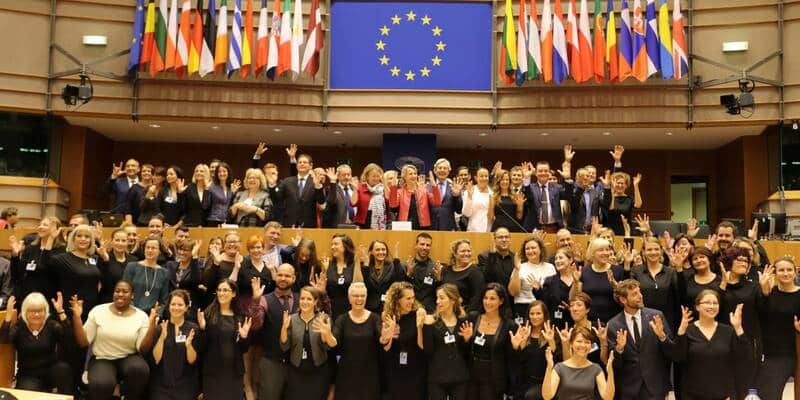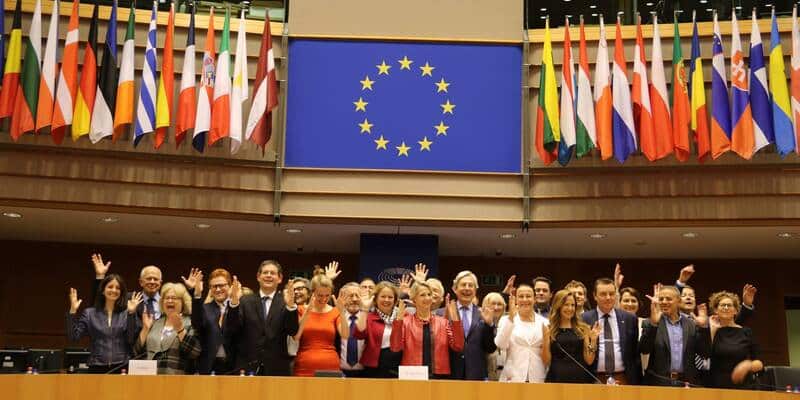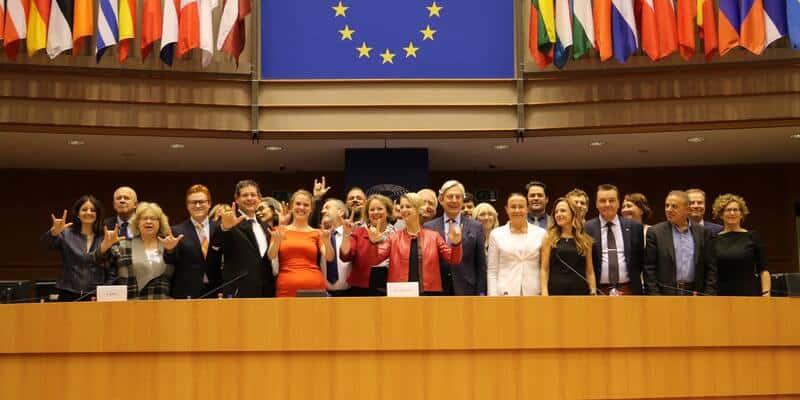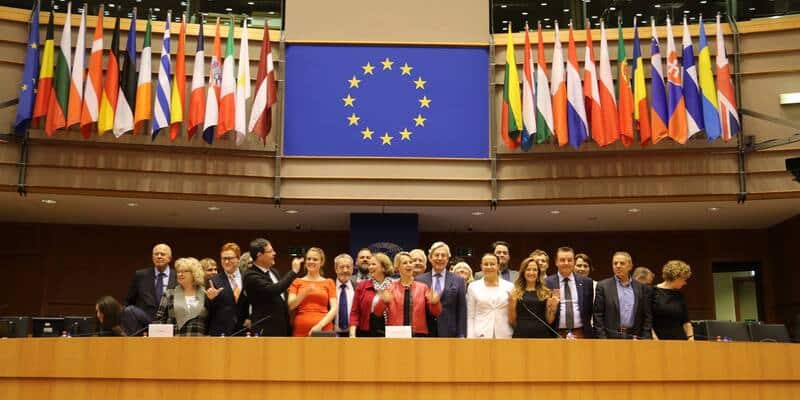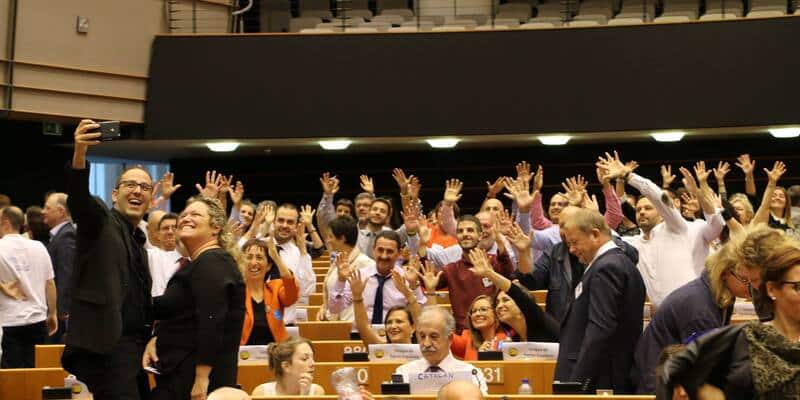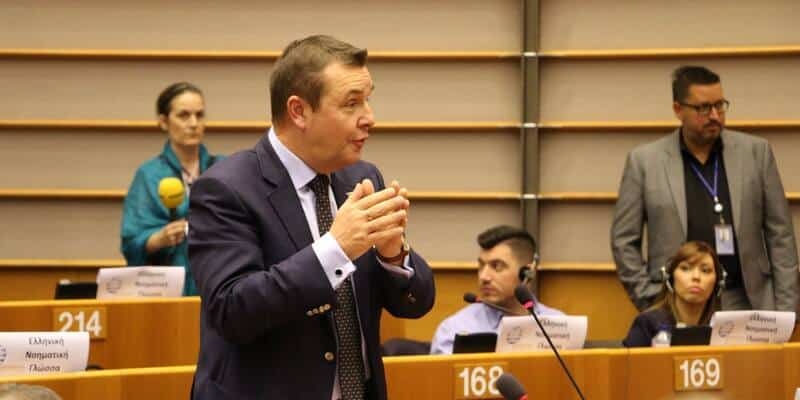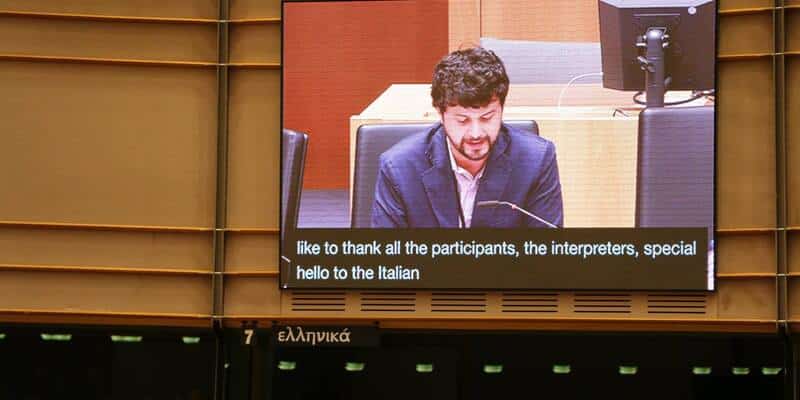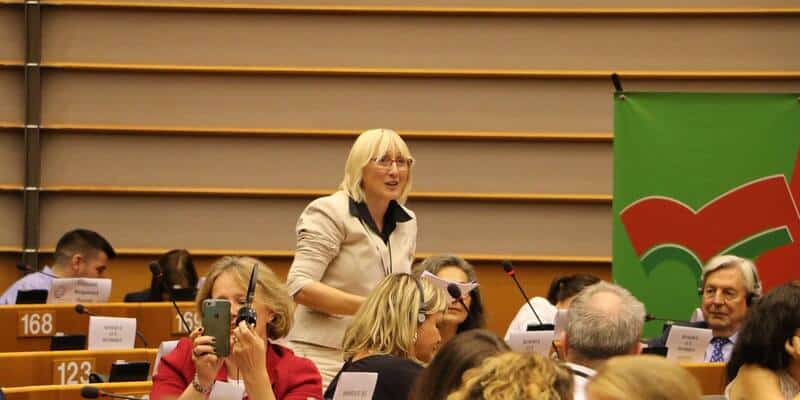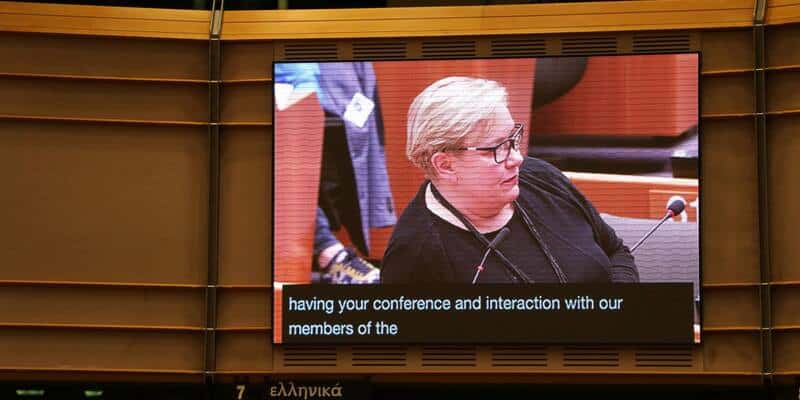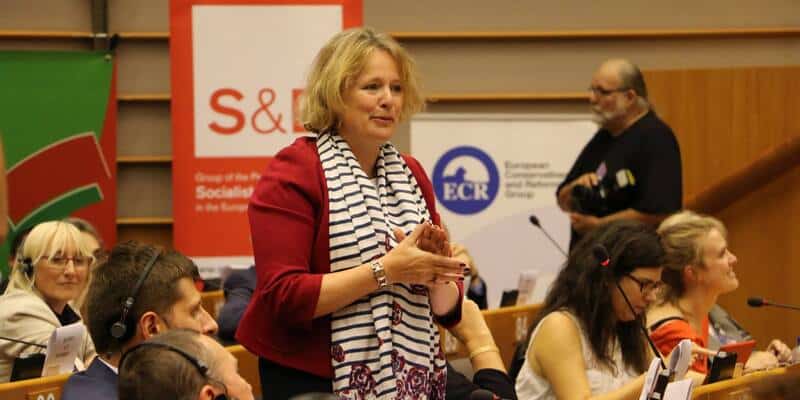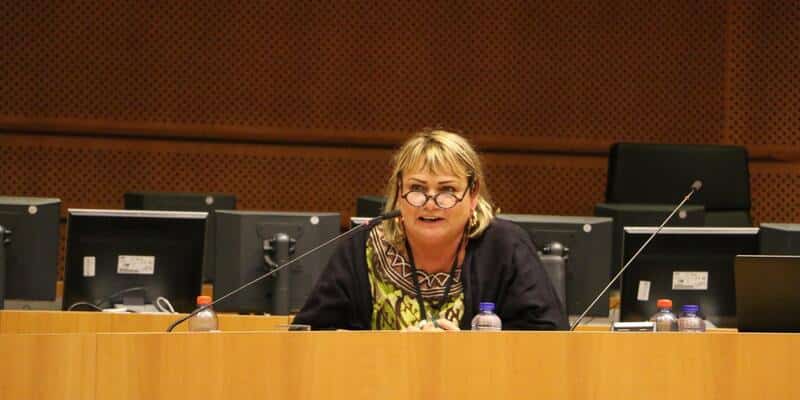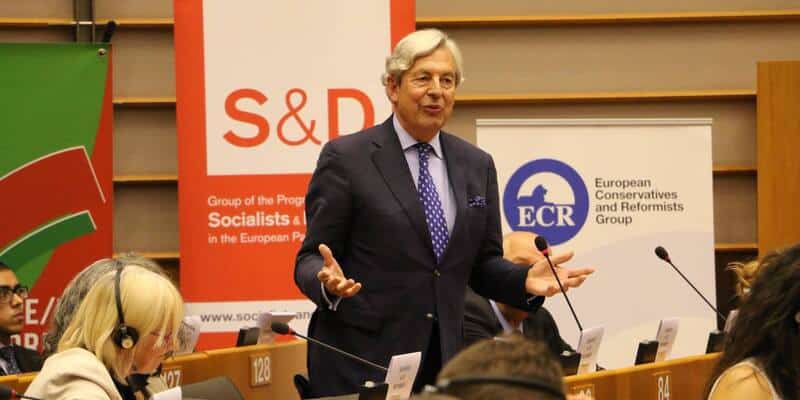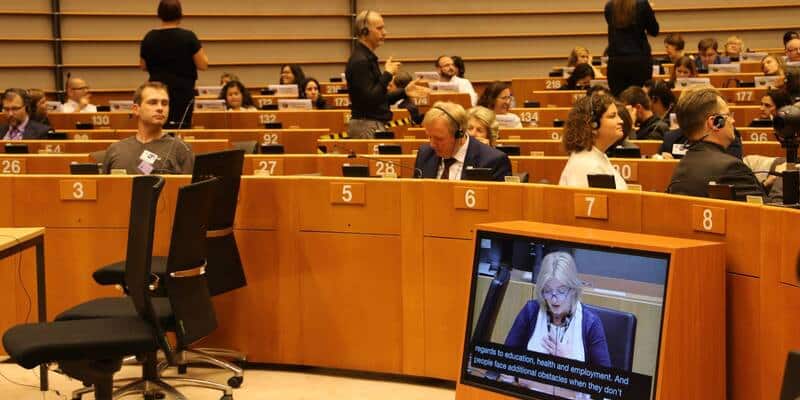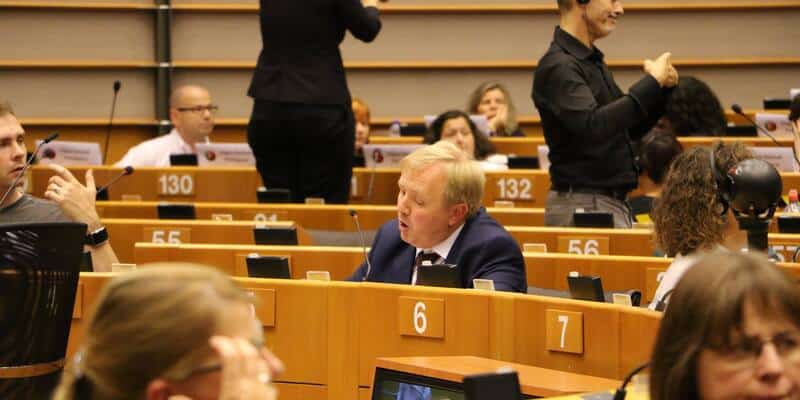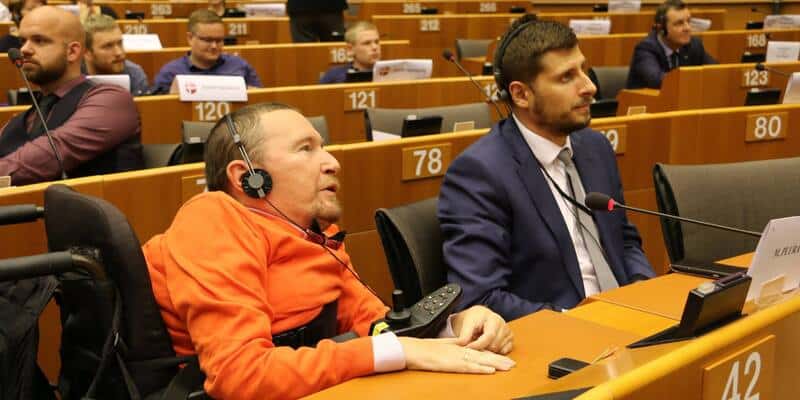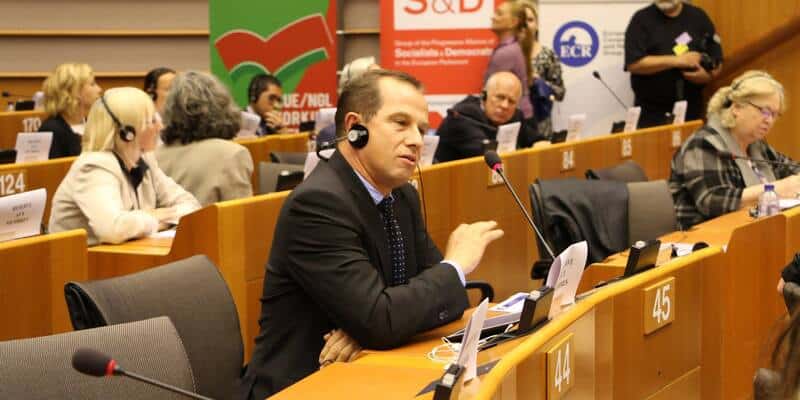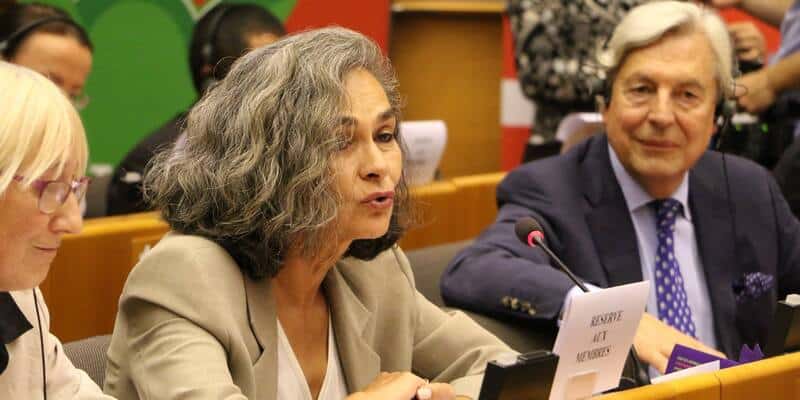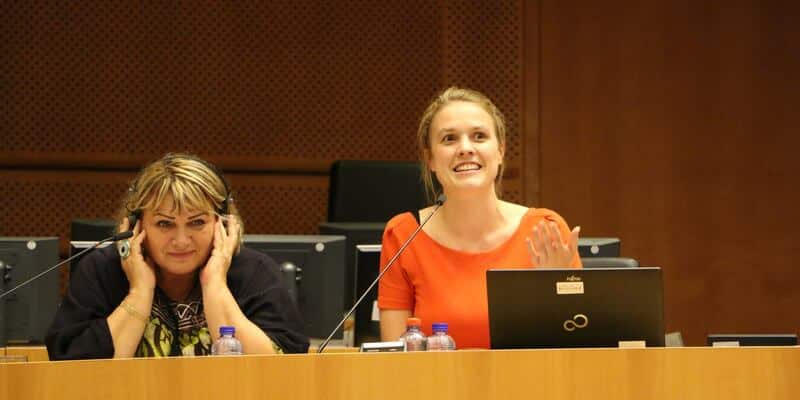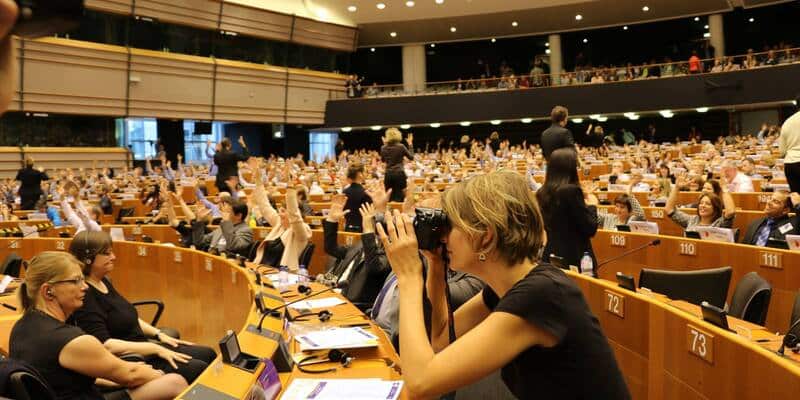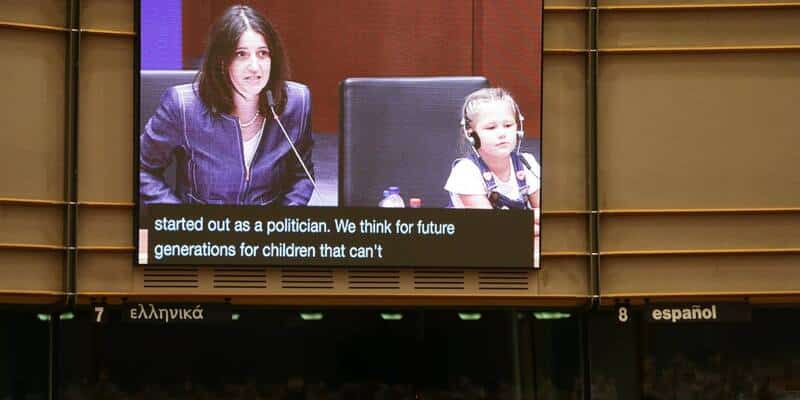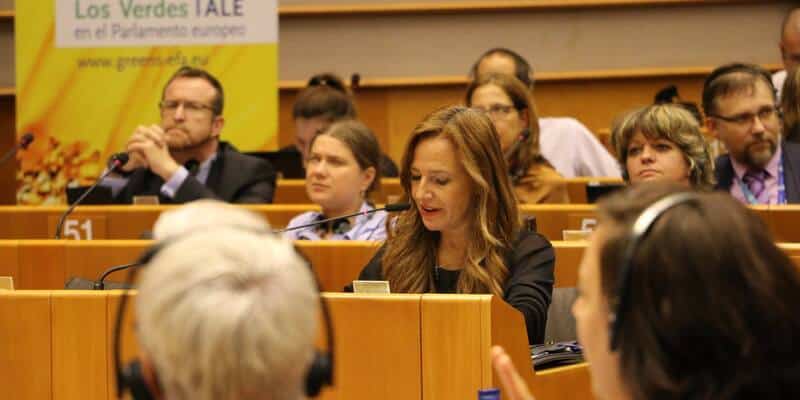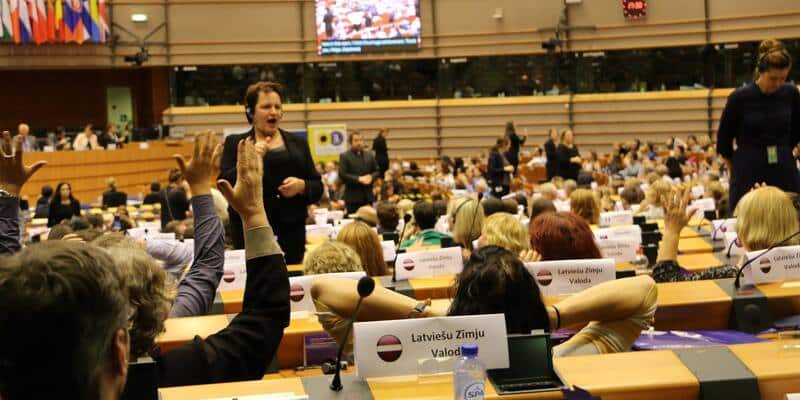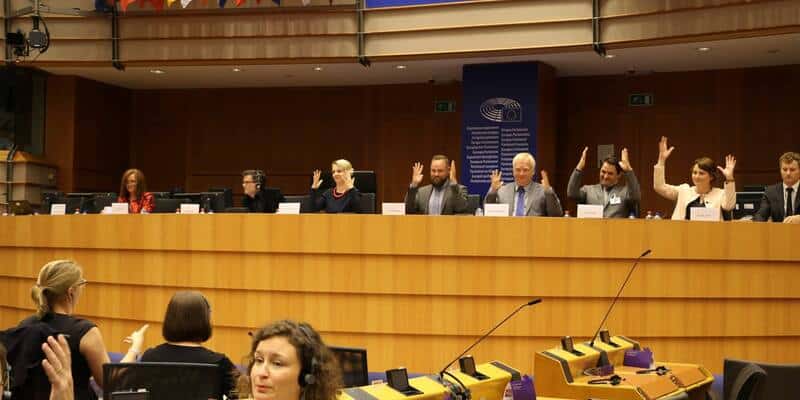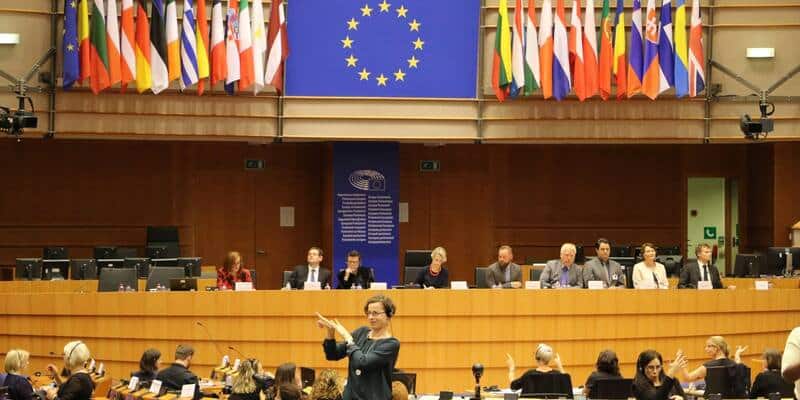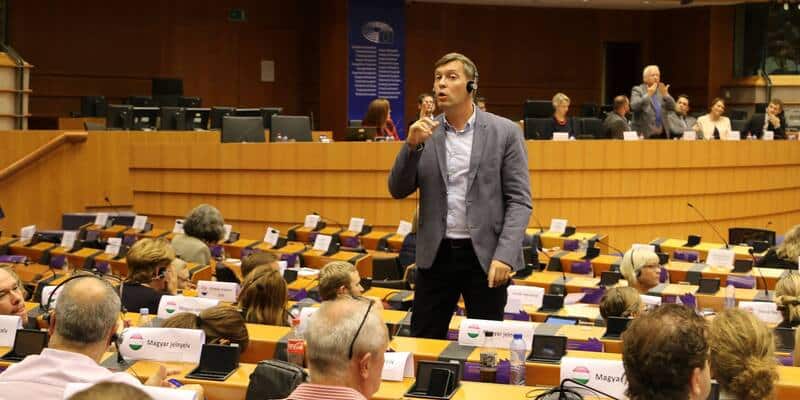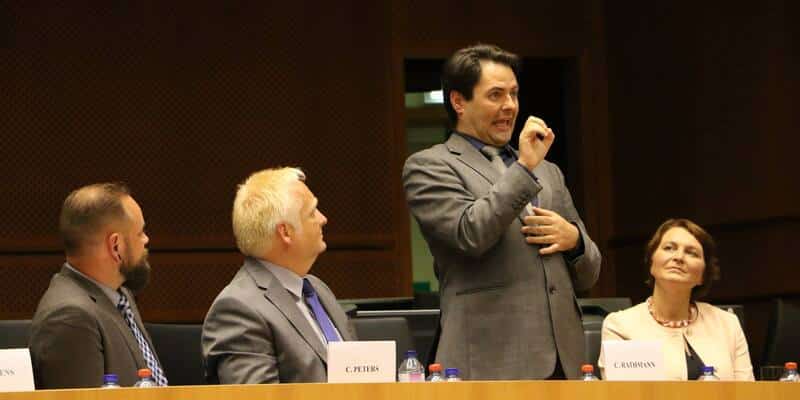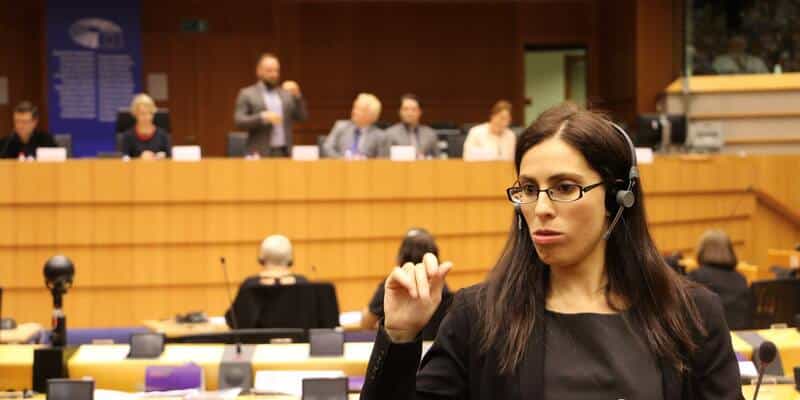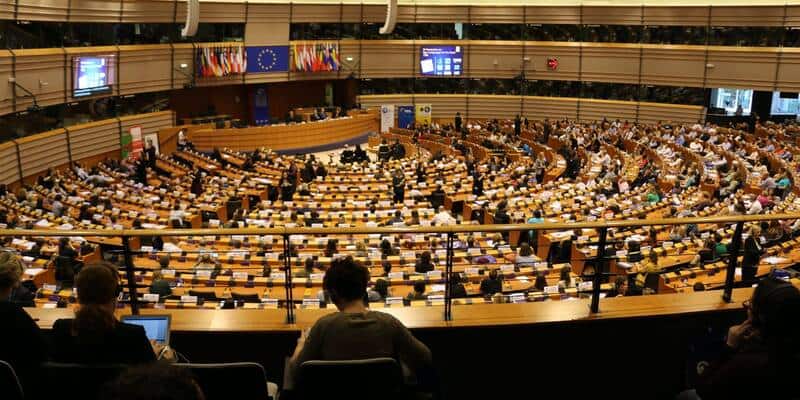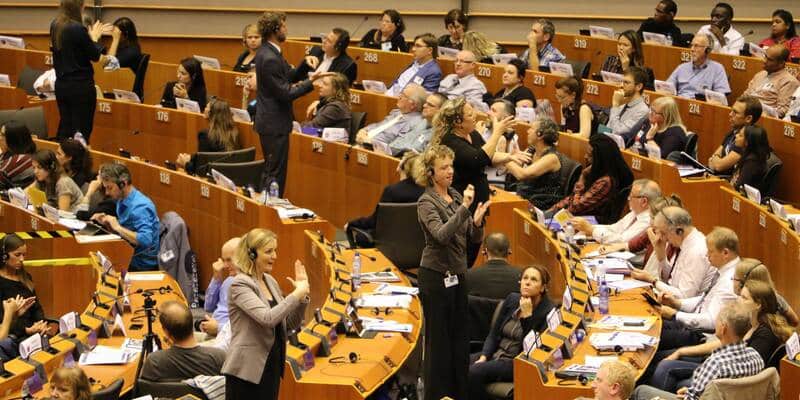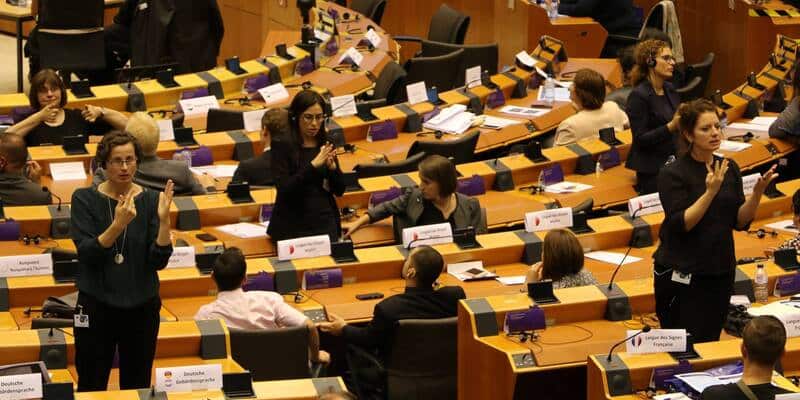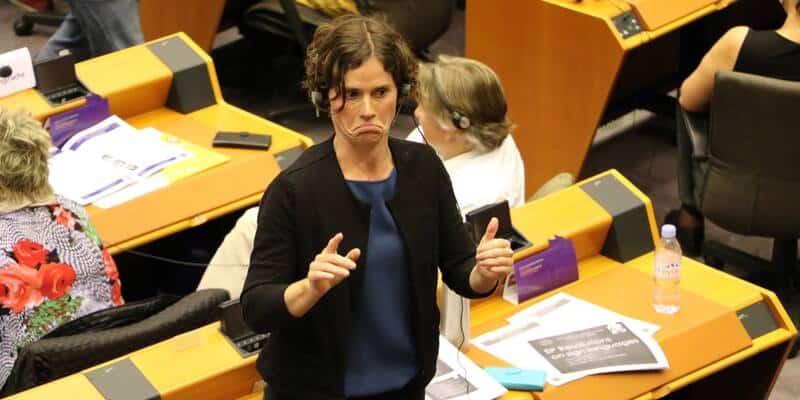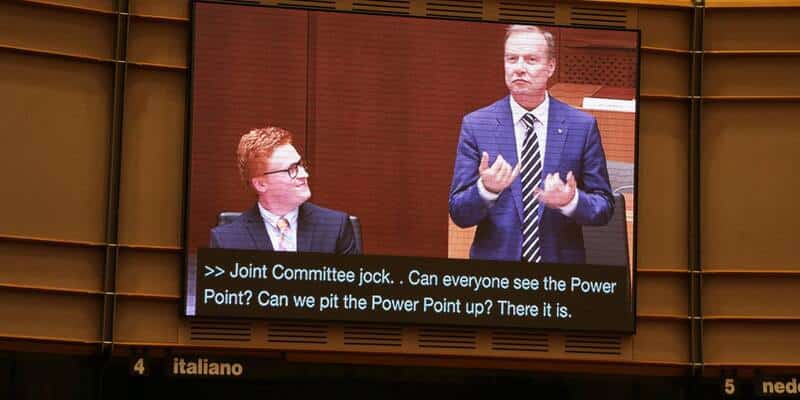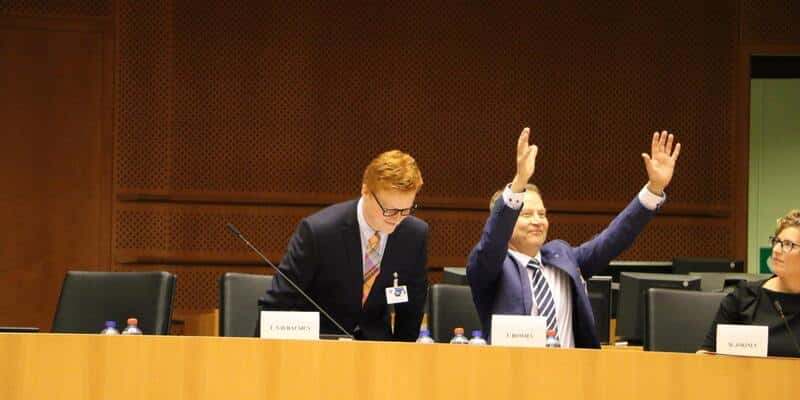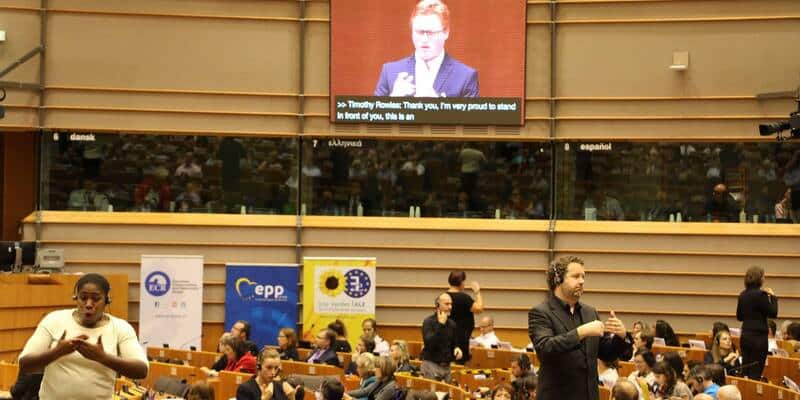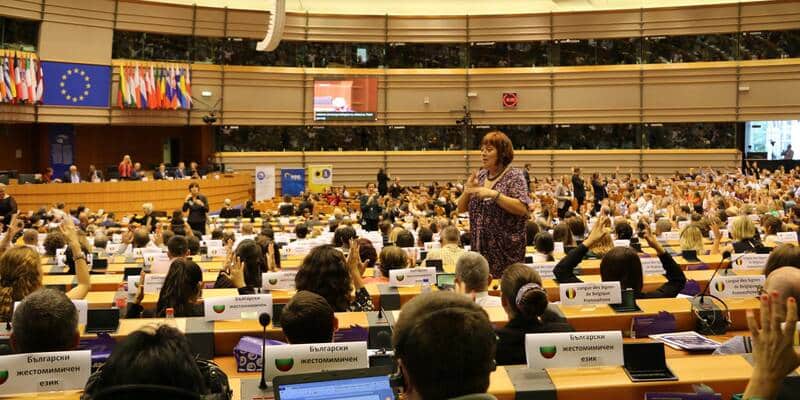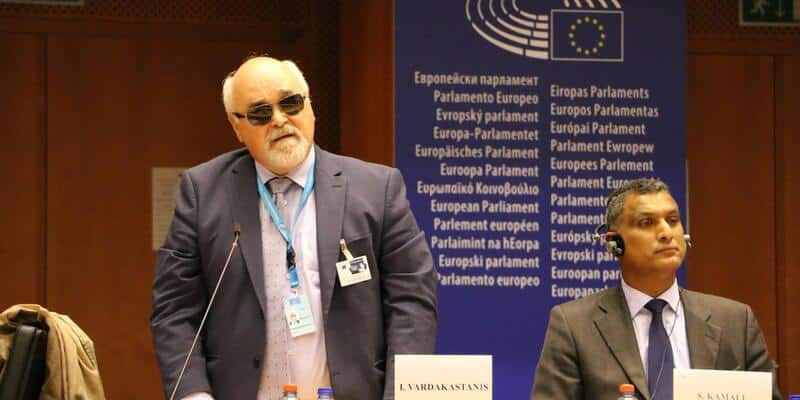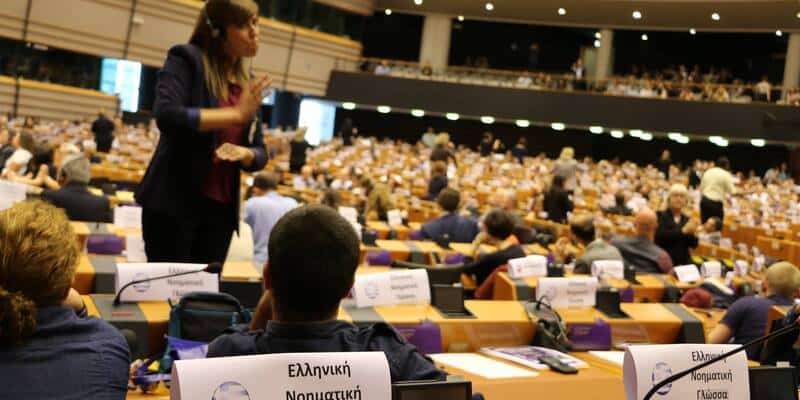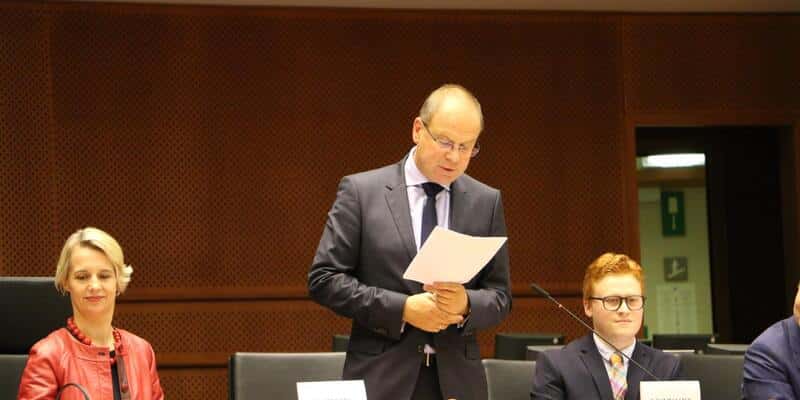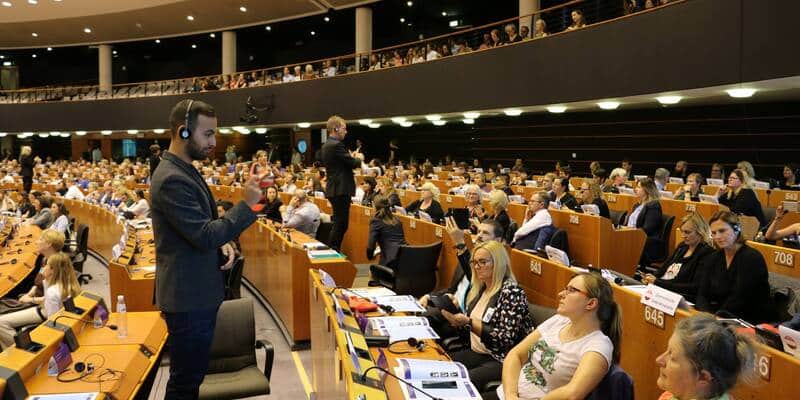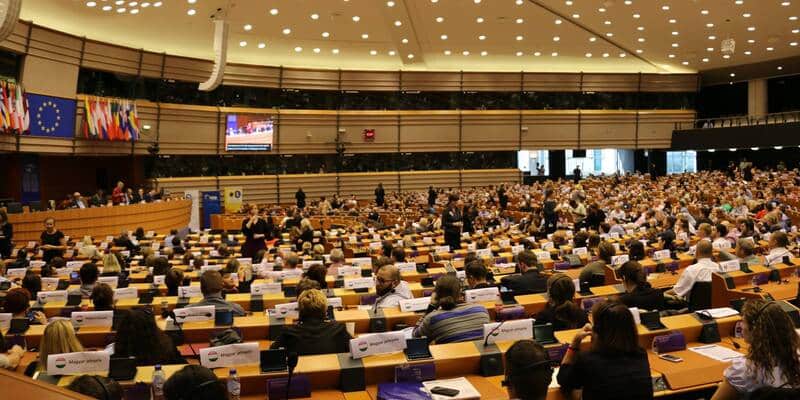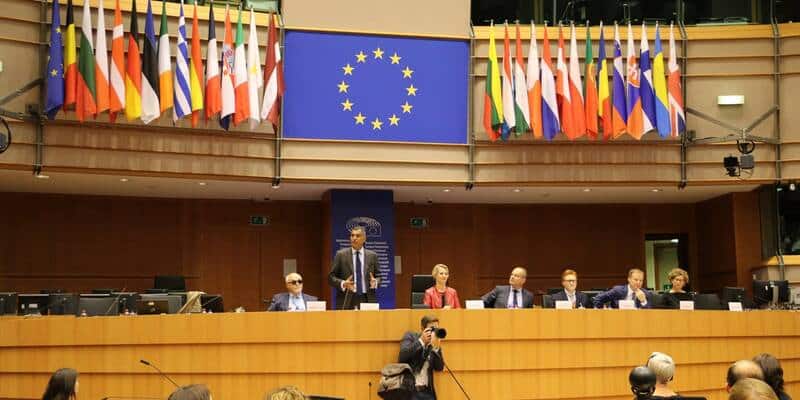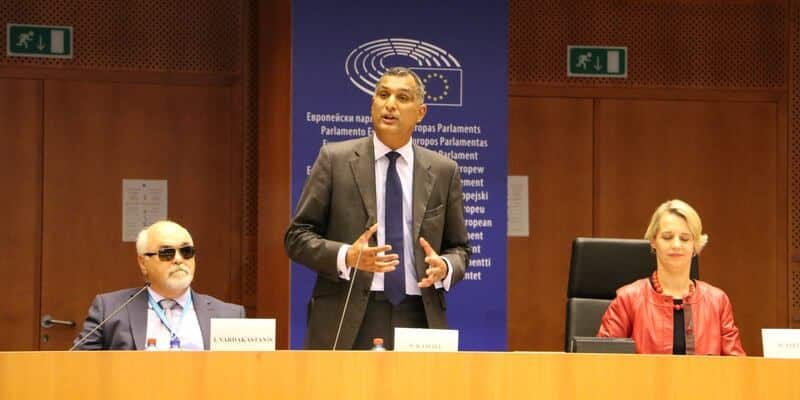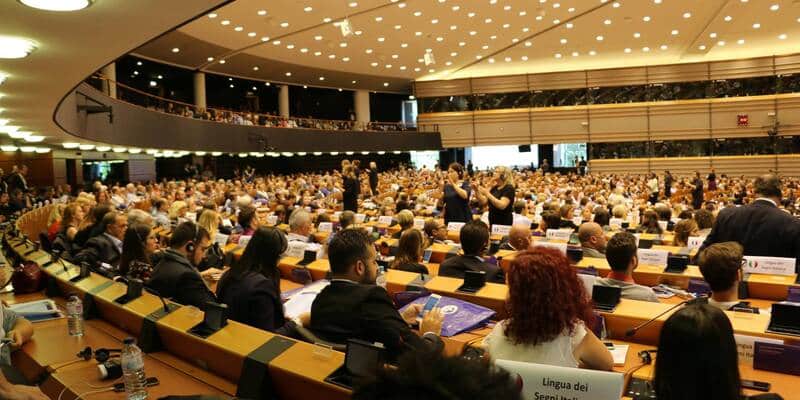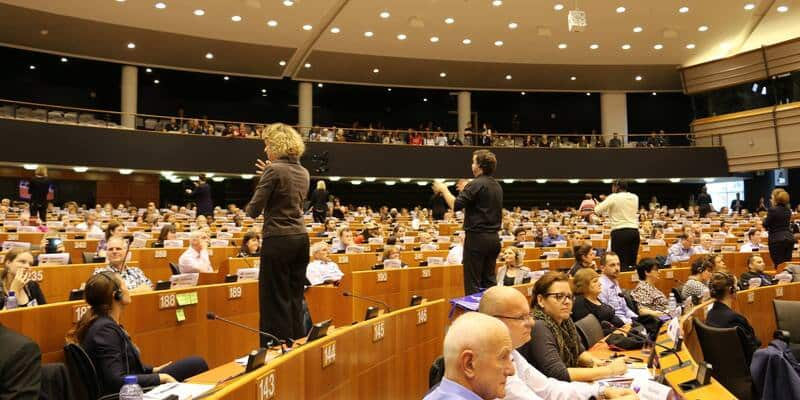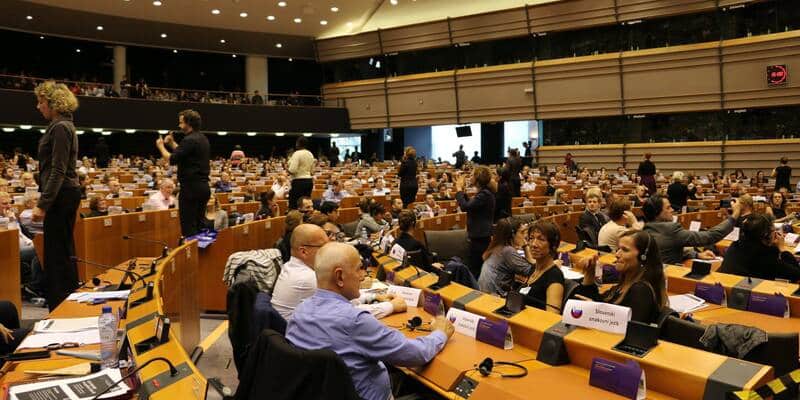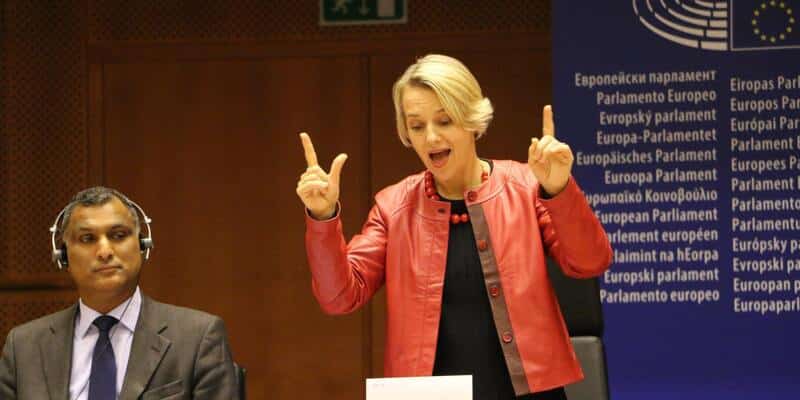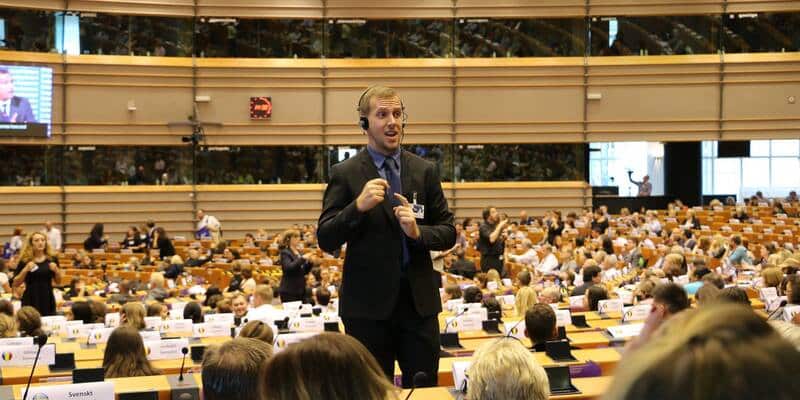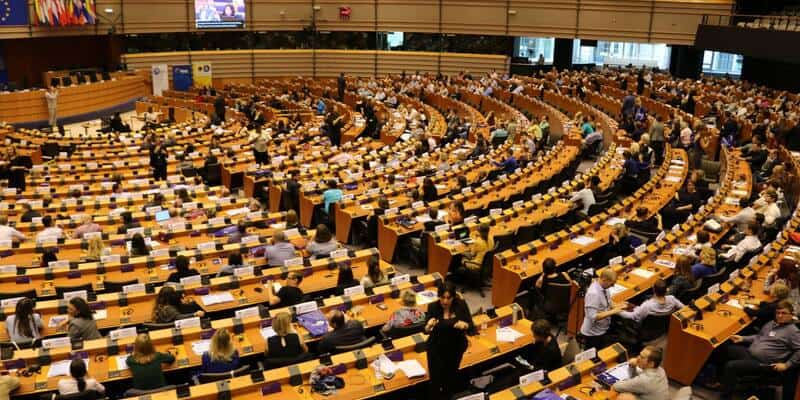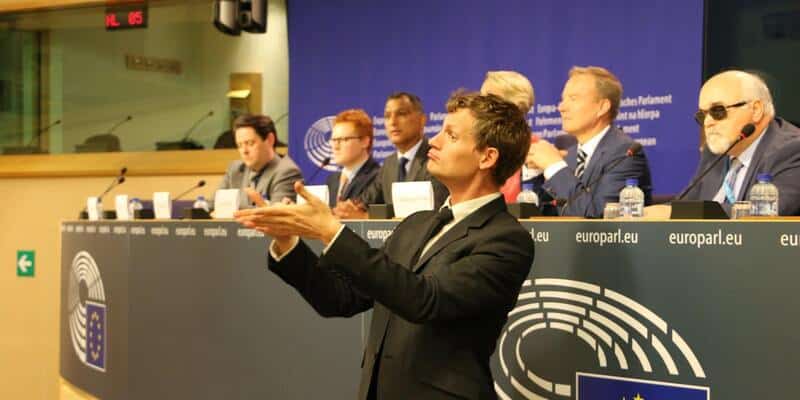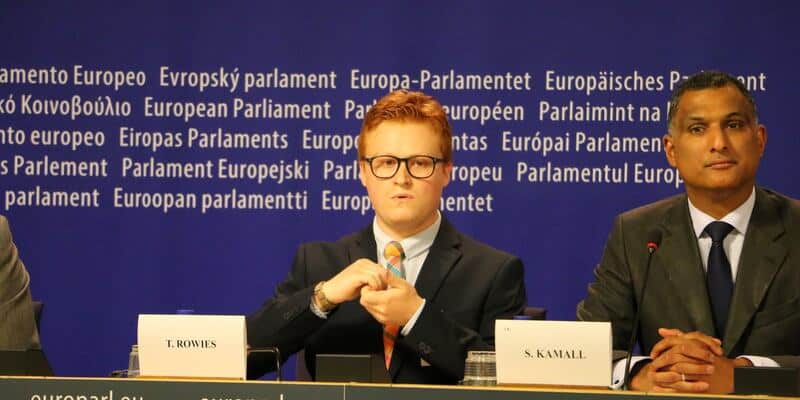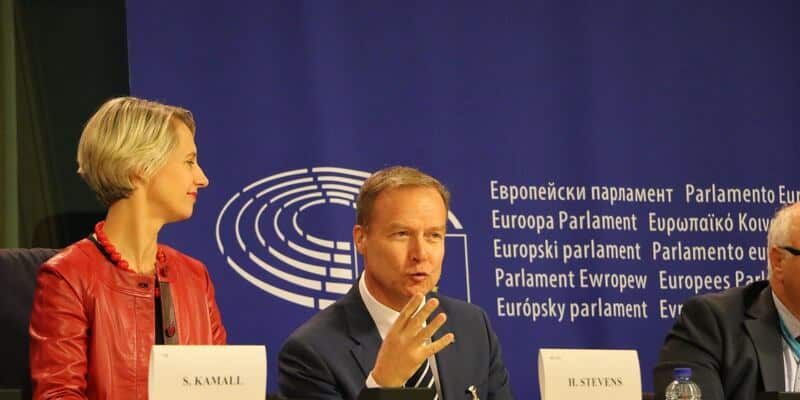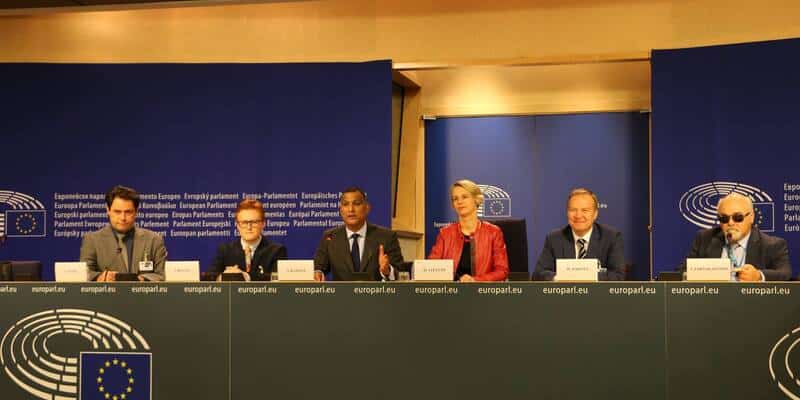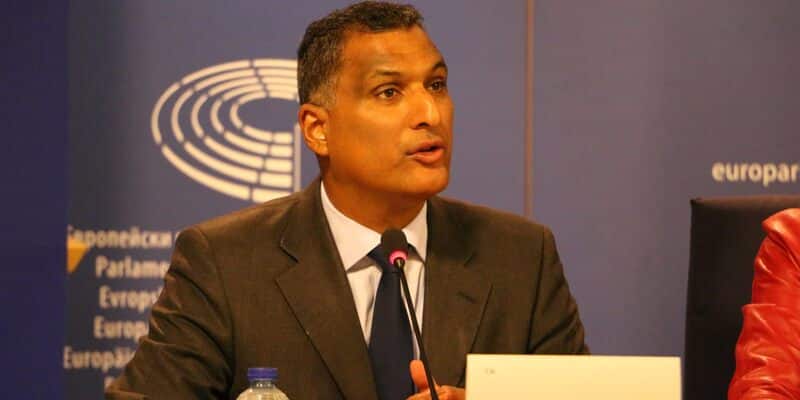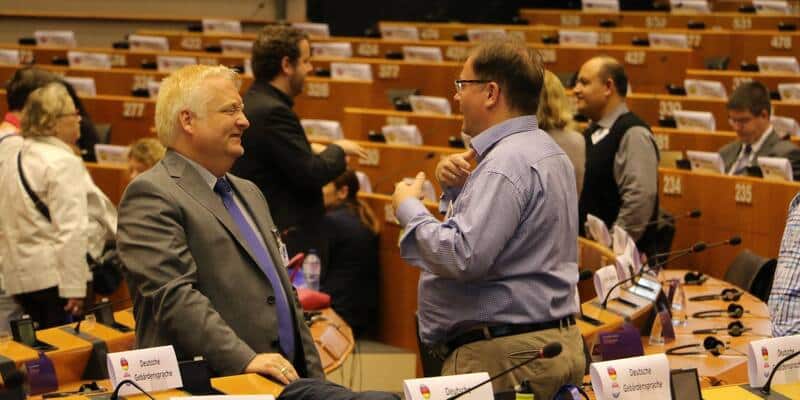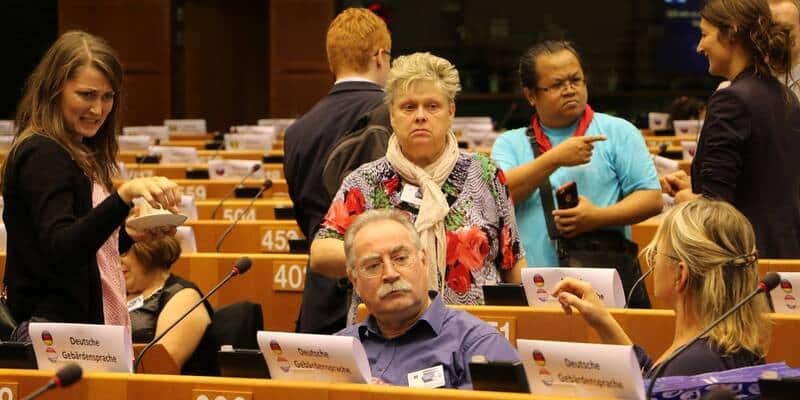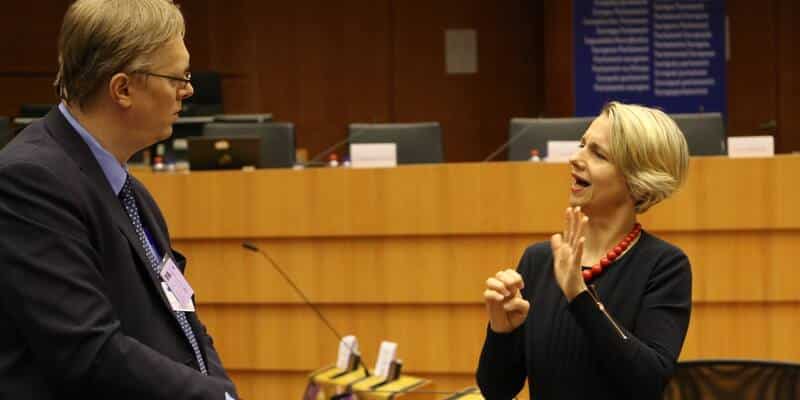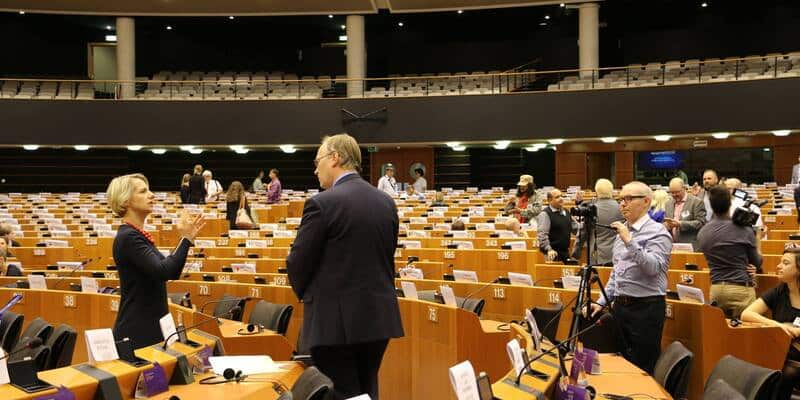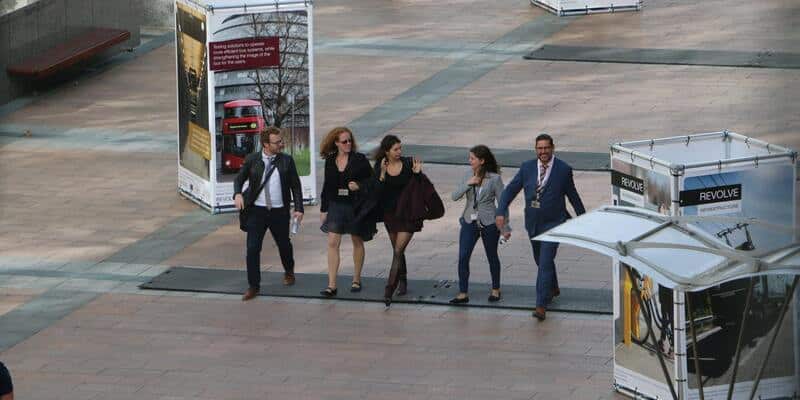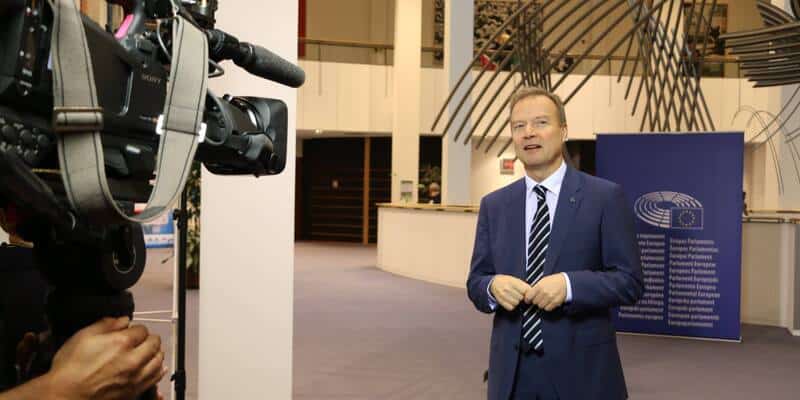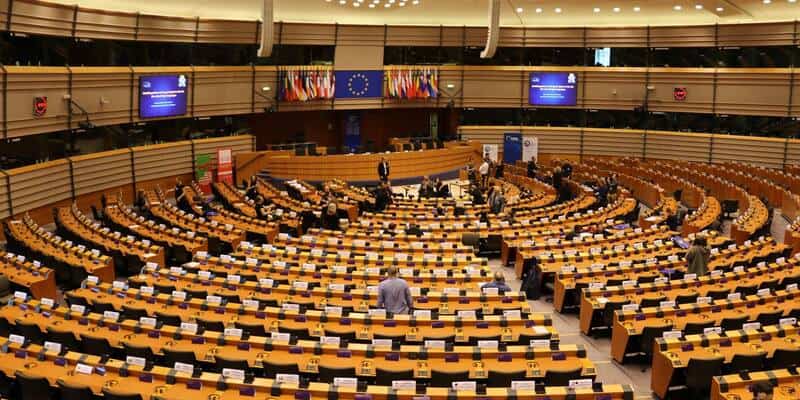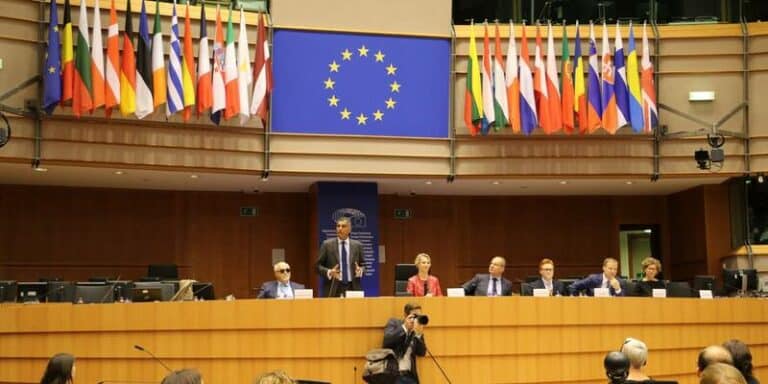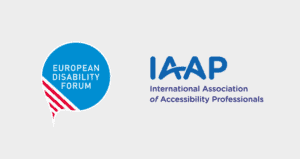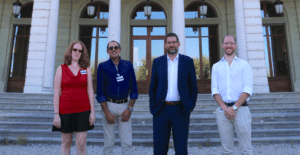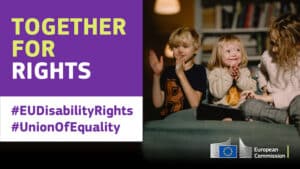Yesterday, a historic conference on “Multilingualism and equal rights in the EU: the role of sign languages” organised by MEP Helga Stevens took place in the hemicycle of the European Parliament in Brussels. More than 832 persons, the majority of them deaf, from all over Europe and beyond, came to discuss about this important topic. In order to make this possible, interpretation into 31 European national and regional sign languages, one non-European sign language and the EU’s 24 spoken languages was provided by in total 145 interpreters! Never before, so many sign language interpreters had assembled in one room, it was an impressive sight indeed!
Many important topics regarding sign languages and sign language interpretation were discussed by a variety of speakers, for instance sign language recognition, the two previous European Parliament resolutions on the topic and the situation of professional sign language interpretation in the EU and the European Parliament.
The speakers unanimously highlighted the crucial importance of sign language recognition and the availability of sign language interpretation for the full inclusion of deaf persons into society. They also underlined that recognition alone is not enough: Only the full implementation of this legislation in the Member states can make sure that deaf Europeans have access to fully university qualified interpreters. However, the speakers pointed out that, while the situation of sign language recognition and interpreting is very diverse between EU member states, there generally is a severe lack of fully university qualified sign language interpreters in the EU, with a ratio from 8:1 to 2500:1 sign language users to sign language interpreters (Wit, M. de (2016, forthcoming). Sign Language Interpreting in Europe, 2016 edition). This is, among other things, strongly linked to their difficult working conditions, which are highly inadequate, considering that they require a high degree of language proficiency as well as a university degree in interpretation in order to be qualified interpreters.
We hope that this important event and the resolution that MEP Helga Stevens will present to the European Parliament at the end of this year will give a strong impulse to the full recognition of sign languages in all EU member states and lead to necessary revisions of the existing national and regional law and practices. Only in this way, the situation of sign language interpreters can be improved and adequate training of new interpreter can be ensured, so that deaf Europeans can fully participate in all aspects of life, on an equal basis with others.
